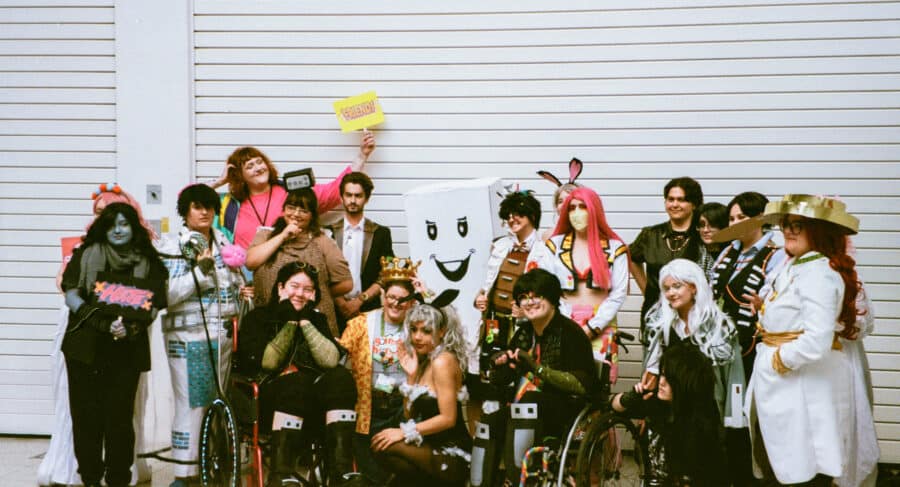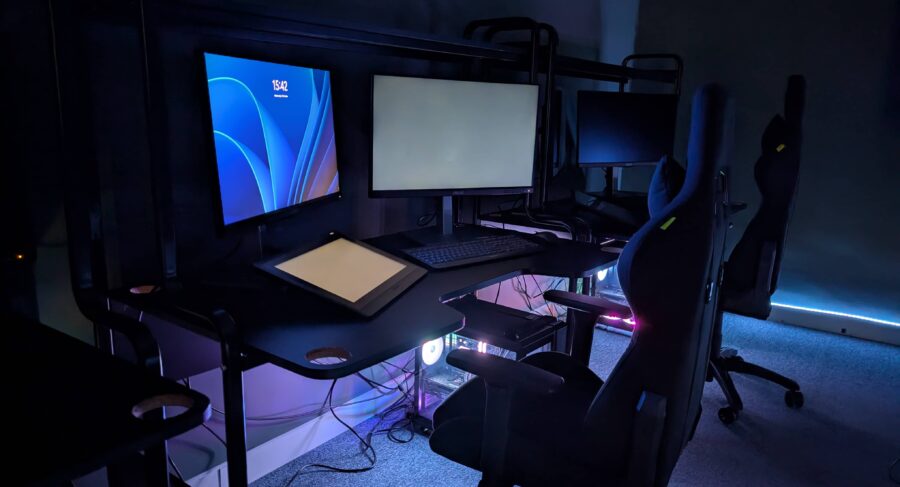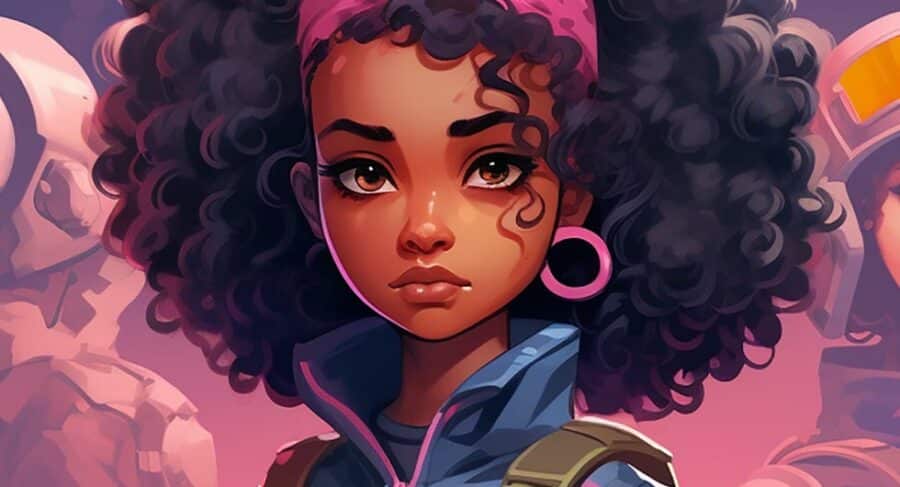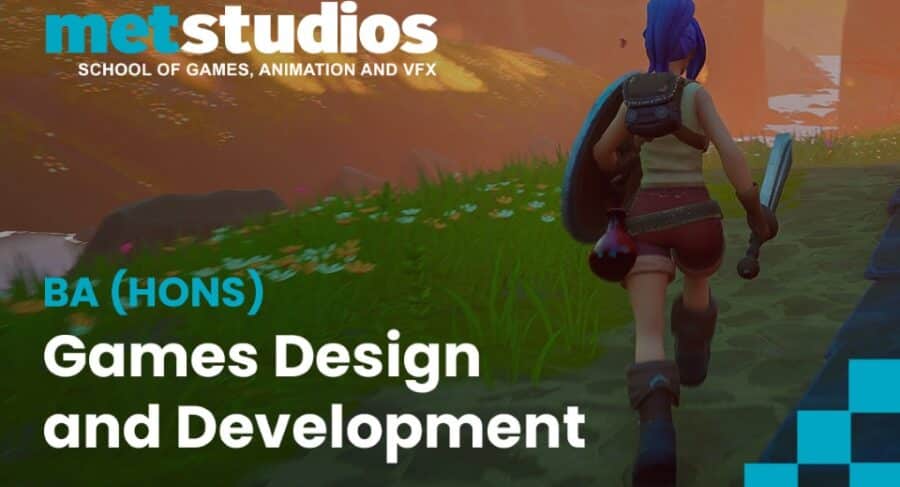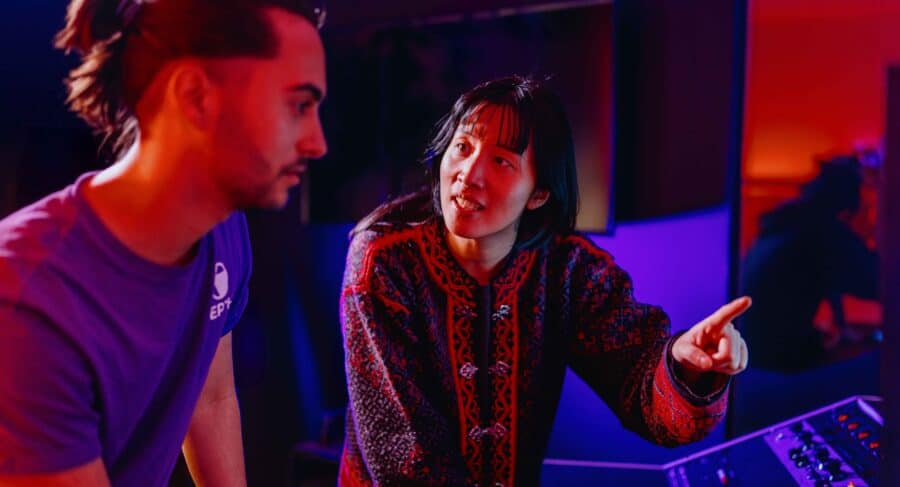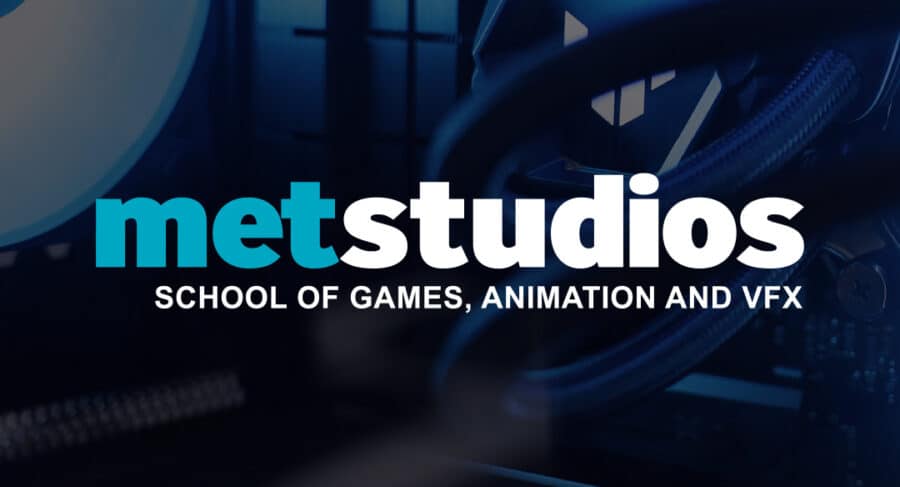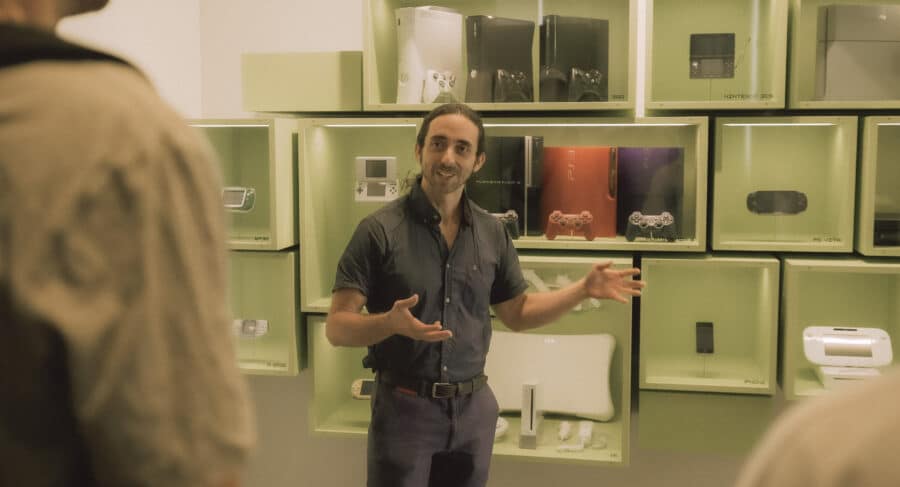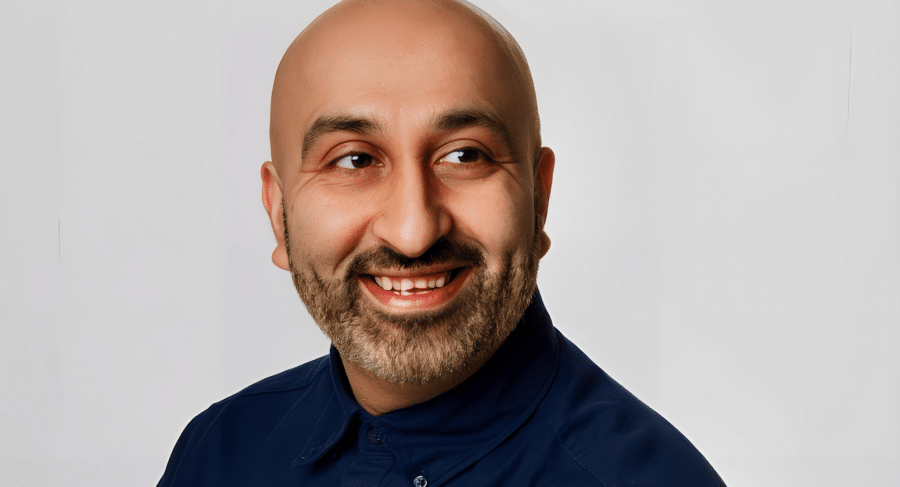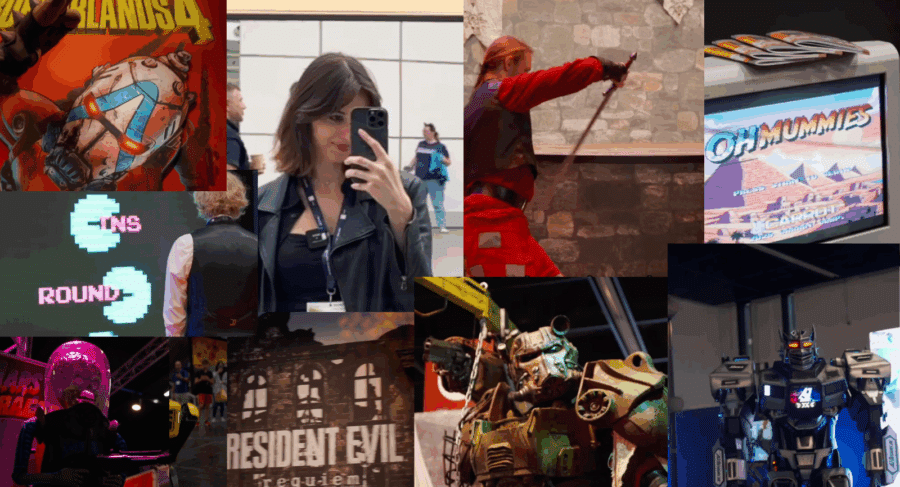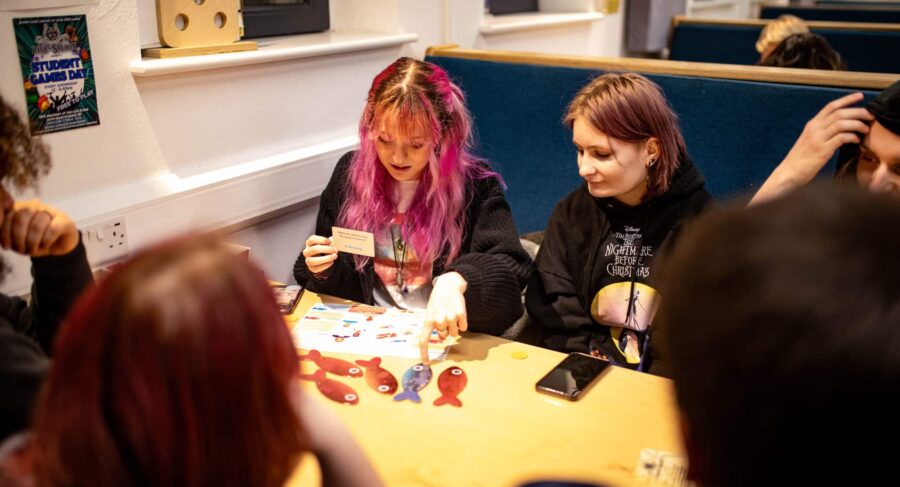5 things we learned from Nicola Strina’s talk at Develop Conference
By MetStudios
29 July 2025
At this year’s Develop Conference, game producer Nicola Strina from Blink Games shared the rollercoaster journey of building and launching a new game. His talk offered an unfiltered look into what it really takes to survive (and thrive!) as a games developer in today’s competitive industry.
Whether you’re already making games or just starting to explore how, his insights hit home. Here are five key takeaways that every aspiring game developer should know.
Big ideas are great, but they need realistic budgets
When Blink first started showing their prototype to publishers, the response was really positive. People loved the visuals, the tone, the animation. But when it came to asking for over a million pounds in funding, the tune changed.
That kind of budget isn’t impossible, but if you’re a new studio with no previous releases or community, it’s a big ask. Eventually, the team re-scoped the project, trimmed non-essential features, and cut their budget in half. Only then did publishers start taking the offer seriously.
Learning how to budget smartly and adapt your scope is something you’ll do constantly in this industry. And it’s not just about numbers, it’s about understanding what makes your game work, and building around that core.
Validation matters more than potential
One of the harshest lessons Blink faced was realising that a great-looking demo wasn’t enough. Without a community around the game – without players talking about it, wishlist-ing it, sharing it – publishers were reluctant to commit.
A game doesn’t just need to work. It needs to prove that people care about it. That’s why early validation (putting something out, getting feedback, showing momentum) can make all the difference. It’s not always fun, but testing your idea early can save you months (or years) of wasted time.
Smaller games are becoming a smarter choice
Nicola talked a lot about how the team’s approach changed after their initial experience. Instead of long, high-budget projects, they now focus on making smaller games, titles that can be built in 6 to 12 months, often with teams of 3–5 people.
It’s not just a financial decision. Smaller games are faster to test, quicker to ship, and easier to adapt. They also give you more chances to learn and improve. You don’t have to wait two years to find out if something works.
The industry is shifting. More developers are finding success with compact, clever games that punch above their weight. It’s a mindset we encourage here: start lean, move fast, and focus on impact.
Constraints are part of the process
When funding fell through and the project was in limbo, Blink had to make some tough decisions. They trimmed the story, simplified parts of the gameplay, and focused only on what really mattered. The result? A tighter, more focused game that still looked and played beautifully.
Constraints are frustrating, but they can also be incredibly useful. They force you to get clear on your priorities and make smarter creative decisions. In games, you’ll never have unlimited time or money. What you can have is a strong idea and the flexibility to shape it into something that works.
Your first game doesn’t need to be perfect
Maybe the most encouraging thing Nicola said was this: your first game doesn’t need to change the world. It just needs to exist.
It’s easy to fall into the trap of trying to make your dream game straight away. But in reality, it’s more important to start, finish, learn, and repeat. A collection of smaller games shows your growth, your style, and your ability to deliver – something publishers and studios look for far more than an unfinished masterpiece.
Thinking about a career in games?
Nicola Strina’s talk was a brilliant reminder that the path into the industry isn’t always straight, but it’s navigable if you have the right mindset:
- Stay flexible
- Test early
- Think creatively within limits
- Keep building
That’s exactly how we approach things at MetStudios. From day one, we help you turn ideas into playable, portfolio-ready projects that are grounded in how the industry really works.
MetStudios offers BA (Hons) degrees in Games Art and Technology, Games Design and Development, and Animation.
Discover MetStudios Brighton for yourself at an upcoming Open Day or find out more about our courses here.

